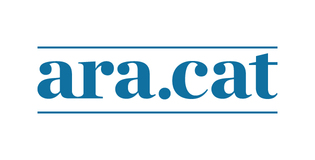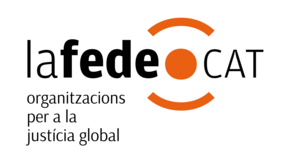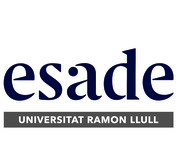AI, Rights and Democracy
#IADretsDemocràcia Risks and powers of artificial intelligence
23 Feb - 02 Nov @ Canòdrom
SessionsIntroduction
Details
Artificial intelligence (AI) is here to stay. In recent times, automated decision systems are revolutionizing industries and sectors, as well as our everyday lives. The ChatGPT xatbot summarizes key ideas from long texts, writes journalistic pieces, or elaborates applicable code strings. How does this affect education, journalism, or programming? Or the DALL-E 2 software, an AI that simply creates plausible images with small indications in the form of descriptions.
Now, the impact and media noise does not match the reality. Artificial intelligence was already in our lives long before, although perhaps in a not so obvious way: algorithms that select the content that is shown to us on social networks or streaming platforms, personalized advertising to search engines, or navigation systems are some of its applications. But not only. Technology based on artificial intelligence also operates and determines applications for home mortgages or social aid, with all the implications in terms of rights that these types of decisions may have to be automated. AI-based technology is also being applied in sectors such as communication and journalism, and is determining the working conditions of many workers, while creating new precarious jobs focused on training and feeding the algorithms..
While artificial intelligence improves efficiency and productivity in complex and repetitive tasks, or can even improve the accuracy and speed of medical diagnoses, it also opens up multiple controversies and discussions. What do we know about this technology? Why do some organizations prefer to refer to it as «automated decision systems» ? Who governs it? Who has access? What does reducing complex realities to systems of categories and data banks imply, in order to apply automated decision systems? Who is being left behind?
Artificial intelligence, rights, and democracy
The Canòdrom begins a new cycle of four conferences that analyse artificial intelligence from a democratic perspective. From what effects it has on society, to how we face challenges in the defense of rights, to how we use technology to improve people's lives.
🎙 Theoretical-Practical Sessions
5️⃣ Critical Pedagogy for Artificial Intelligence - November 2, 5:00 p.m.
How does data processing actually work? How do results come about? And how can we learn from incorrect results? In this theoretical-practical session with the Estampa collective, we will delve into the inner workings of AI models. How is the automation of text and image generation achieved? What criteria are used to identify the contents of an image? What are the environmental and political implications of the current AI model? We will bridge the gap between theory and practice, furthering the discussions sparked within the framework of this series on the potential and limitations of artificial intelligence. Open enrollment!
🎙 Discussions
1️⃣ WTF, intel·ligència artificial? Riscos i potències - 23 febrer, 18:00h
While artificial intelligence improves efficiency and productivity in complex and repetitive tasks, or can even improve the accuracy and speed of medical diagnoses, it also raises a lot of questions and challenges. What do we know about this technology? Why do some organizations prefer to refer to it as "automated decision systems"? What is its historical background? What does it imply to reduce complex realities to systems of categories and data banks, in order to apply automated decision systems? What are the main potentialities, and the main biases, of artificial intelligence? In the first session of the Artificial Intelligence, Rights and Democracy Cycle we have Carlos Castillo (UPF) and Maria Vanrell (UAB) to address these issues and to have some basic notions about the operation, applications and ethical debates of this technology.
2️⃣ IA, Polítiques públiques i Discriminacions - 20 abril, 18:00h
The Barcelona City Council has approved the protocol "Definition of working methodologies and protocols for the implementation of algorithmic systems", which aims to create an internal protocol for the implementation of algorithmic systems and artificial intelligence in the municipal sphere. The Human Rights Institute of Catalonia has published a report on the effects of artificial intelligence on equality and non-discrimination, analyzing where, who, what for and how artificial intelligence is developed and applied. Algorace, an organization that promotes spaces for dialogue with racialized population to raise awareness about the consequences of the racist use of AI, has presented a research that establishes the necessary bases to understand what we face from social collectives when we talk about artificial intelligence, or automated decision systems.
3️⃣ IA, Comunicació i Periodisme - 18 maig, 18:30h
The application of artificial intelligence in the world of communication has opened a window of opportunity, with a dark enough slit of challenges. Communicators have at their disposal tools that write content in a few seconds. Journalists can access software that generates automatic images, which have already made the front pages of national and international newspapers. Where is the border between tools to facilitate the work of journalists, and tools to replace journalists? How does the use of these tools affect journalistic precision and disinformation? What is happening in catalan newsrooms? In this session we have Patricia Ventura, PhD in ethics, artificial intelligence and communication and strategic communication consultant, Judith Membrives, digitization technician at Lafede.cat, Carles Planas Bou, technology journalist at El Periódico, and Enric Borràs, deputy director of the newspaper Ara.
4️⃣ IA i Economia de plataformes - 22 juny, 18:30h
The regulation of AI applied to productive work and the platform economy is essential to protect labor rights, but how to articulate it? This may include creating laws and policies that guarantee social protection, job security and equal opportunities for workers in the platform economy. It is also proposed as a key to promote transparency in the algorithms used on the platforms and promote the accountability of companies in terms of protection of labor rights. In this session we count with Anna Ginès Fabrellas, professor of the Department of Law at ESADE and director of the Institute of Labor Studies, Sergi Cutillas, economist specializing in competition policy, digitization and strategic consulting, member of the Observatory of Labour, Algorithm, and Society (Observatori TAS), and Daniel Cruz Fuentes, Responsible for Analysis and Digital Transformation of CCOO Catalonia.
📚 Materials
Consult the open repository of reports and publications that have contributed to the discussions.
Organizers
Partners

UPF - Web Science & Social Computing

UAB - Computer Science Department

Institut de Drets Humans de Catalunya

Ajuntament de Barcelona - Fundació Bit Habitat

AlgoRace / (des)Racializando la IA

El Periódico

Diari Ara.cat

LaFede.cat - Organitzacions per a la Justícia Global

ESADE - Institut d'Estudis Laborals

CCOO - Secretaria d'Acció Sindical i Transició Justa

Observatori del Treball, Algoritme i Societat
Objectives
1️⃣ Session 1 | WTF, intel·ligència artificial? Riscos i potències - 23 febrer
2️⃣ Session 2 | IA, Polítiques públiques i Discriminacions - 20 abril
3️⃣ Session 3 | IA, Comunicació i Periodisme - 18 maig
4️⃣ Session 4 | IA i Economia de plataformes - 22 juny (pròximament)
5️⃣ Session 5 | Critical Pedagogy for Artificial Intelligence - November 2, 5:00 p.m.
Conference Venues
-
Canòdrom - Ateneu d'Innovació Digital i Democràtica
C/ de Concepción Arenal, 165, 08027 Barcelona
Sala Ada Lovelace
-
17:00 PM
-20:00 PM CET




Share